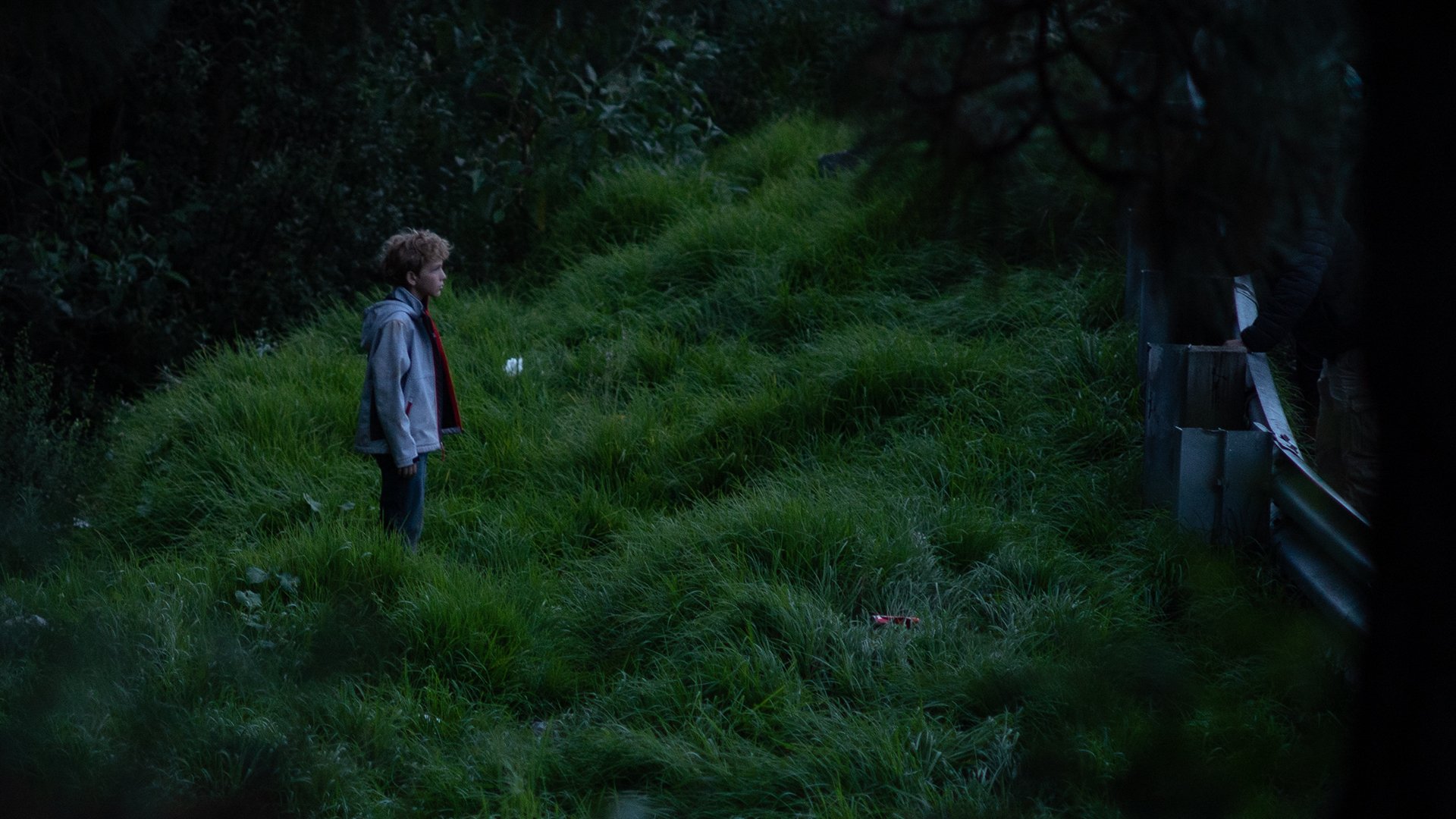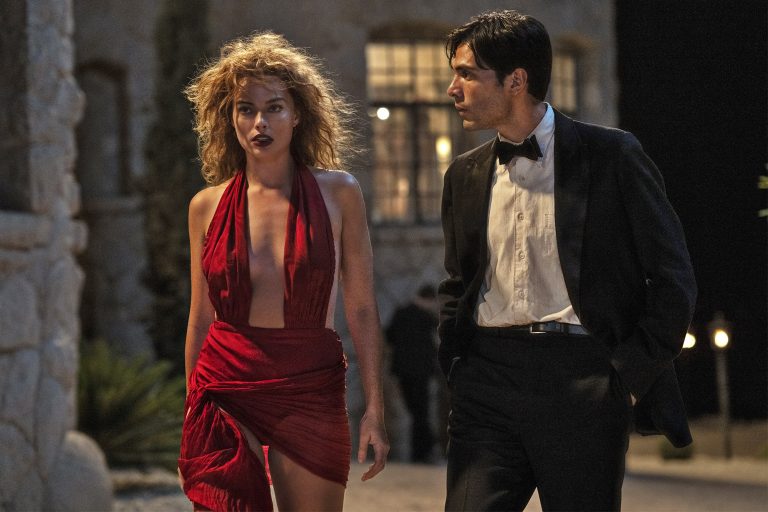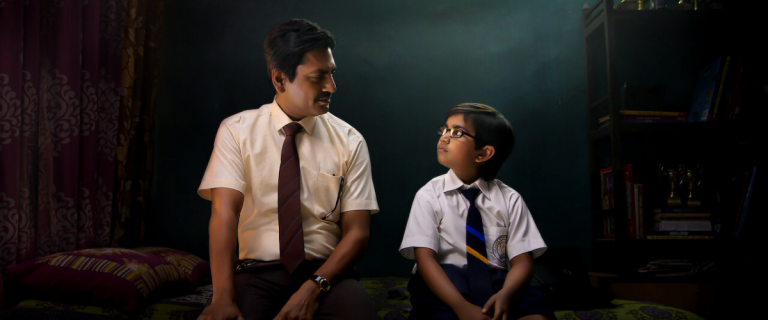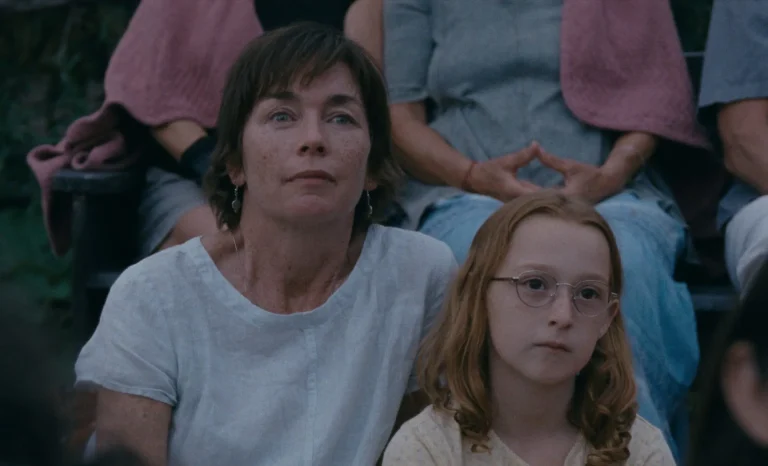The Hole in the Fence (2023) Movie Review: While indoctrination is often implicit, for example, between a parent and a child, when viewed through the derogatory lens, which is how the phrase is commonly used, indoctrination is accusatory in tone, and the accusation is legitimate. It’s the imparting of doctrine or creed with the implicit caveat of taking all these creeds or doctrines being taught as the gospel. It’s that caveat that separates education from indoctrination because education, by definition, opens up to questioning. Ideally, education is supposed to expand and develop critical thinking, but indoctrination doesn’t have room for questioning; the creed is ironclad.
Joaquin del Paso (Panamerican Machinery) is not shy of his influences while exploring the story of the students of an elite Mexican school being sent off to a prestigious religious summer camp, the Centro Escolar Los Pinos. The teenagers who are being sent are mostly belonging to the elite. Hence, the entitlement almost secretes off the pores of their skin, and as one of the parents states to one of the professors, “The journey to becoming a man is a delicate affair.”
The delicate affair stems from the malleability of the teenage brain, which is already filled with energy, uncontrolled anger, curiosity, and lots of hormones. As a result, when confronted with this entitlement, most students turn on the brown-skinned kid, whose skin color is as heinous a crime as his attending the school and thus entering this club because of a scholarship. That entitlement also extends to homophobia, which becomes a form of teasing that leads to downright nasty barbs and comes to blows among the kids.
The bucolic nature of the summer camp adds to the overall unease, but the interaction of the students with the professors, their manipulation and imparting of the doctrine, and the resulting violence that follows fill you with dread and unease as the horror builds and builds. Blood and gore are almost unnecessary here. The horror stems from the heavenly abode aesthetic, which is disguising the ninth circle of hell, which this place truly reveals itself as. And even as the titular “hole in the fence” is found and utilized towards the end in a much more predictable manner. As a viewer, you are not put off by the familiar plot beat of the storytelling because the unease never really goes away.

Paso never lets go of that unease, be it with his gorgeous cinematography, the discordant background score, or the raw performance of all these non-professional actors, which gives all of these moments a heightened sense of realism. The viewer is burdened with the knowledge that the narrative is never going to be subverted, even if the viewer would want hope to ultimately prevail.
The commentary, however blunt it might be, is effective because of the familiar nature of its narrative. Partly inspired by “Lord of the Flies,” with shades of Alejandro Landes’ 2019 film “Monos,” “The Hole in the Fence” never loses sight of its individuality. It tries to utilize symbolism by showing the kid with the broken arm and foot with the rabbits alone while all the other kids are out in the village, delivering and preaching. But its symbolism feels redundant in light of its reductionist storytelling about the cons of religious indoctrination.
There is no doubt as to the complicity of the instructors. The methods they use to make the kids divided or crystallize their entitlement and rage are reminiscent of sects like Scientology using peer pressure or personality tests for indoctrination. It is far darker because religion or the concept of faith is supposed to be about the belief in a higher power, and this common belief binds people together.
Still, the movie isn’t shy about showing the perils of teaching conservative philosophies and how to weaponize the anger, frustration, and confusion of the youth through incendiary words like “justice” or a “just war.” This is hell, and Del Paso never lets you off the hook, even showing the proclivity of a kid to belong in a tribe or the majority and how that bypasses the sense of morality itself.
It truly is a “delicate matter,” a child’s journey to become a man. Perhaps that delicate nature, the open and almost pure form of angst, anger, and curiosity, is what is ripe for the picking for the adults, the clay to mold these teenagers into fanatics, safely ensconced in the blanket of generational wealth and capitalism.
It’s horror at its most blunt, and sometimes the transition of these kids toward the end doesn’t exactly translate well. Nevertheless, Del Paso never compromises on the vibe and the atmosphere of the film, leaving the viewer always on edge until the credits roll and your hackles slowly start to recede but never fully disappear into your skin. The movie does its job, burrowing into your skin and making you wonder. Sometimes subtlety isn’t necessary. Sometimes just the juxtaposition of the external splendor with the internal grime is enough to make you shudder.




![Forever Out of My League [2022] Review: A Sweet, Disjointed Film About Friendship, Love, and Terminal Disease](https://79468c92.delivery.rocketcdn.me/wp-content/uploads/2022/04/Forever-Out-of-My-League-1-768x322.jpeg)




